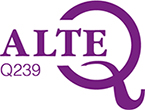
Of course this is a slight oversimplification of the complexity of our world, but it is worth having a look at what’s behind it. We, the experts of the ECL Language Exam have recently investigated whether those who already speak two languages are better at acquiring a third one. The ECL language exam can be taken in the countries neighbouring Hungary (Romania, Slovakia and Serbia), where native speaking Hungarians also live as a minority. These people usually speak two languages; Hungarian, as their native tongue and the language of the country where they live. As a result we were able to compare the test performance of bilingual test takers with that of the monolingual test takers, that is, those Hungarians who live in Hungary and grow up speaking only Hungarian.
We checked the exams taken during a period of three years, between 2010 and 2012, when several thousands of test takers took the ECL language exam in English. The results indicate that if besides their mother tongue someone already knows and uses another foreign language it will be easier for them to acquire a third language. In the case of the receptive skills – listening and reading comprehension tests – the bilingual test takers achieved 15% better results on average, while in the case of the active skills – speaking and writing – the difference was around 10%. This suggests that being a bilingual is an advantage.
What is behind this advantage? Research in recent years has shown that those who learn a foreign language at a young age have better analytical skills in relation to how a language works and this may help them acquire another language. As these people use the two languages constantly and simultaneously they experience a higher number of communicative situations and contexts. They read in different languages so they can get information from various sources and angles. Let us not forget that by learning a foreign language we can get to know the culture and customs of a community speaking that language and this may strengthen our tolerance towards others. Bilinguals show a higher level of sensitivity in various communicative contexts, for example, when something needs to be explained to a blind person. Finally, many empirical studies have proved that bilinguals are more creative and perform better in the case of solving tasks that need critical thinking.
Put those self-improvement guides aside and start leaning languages.






